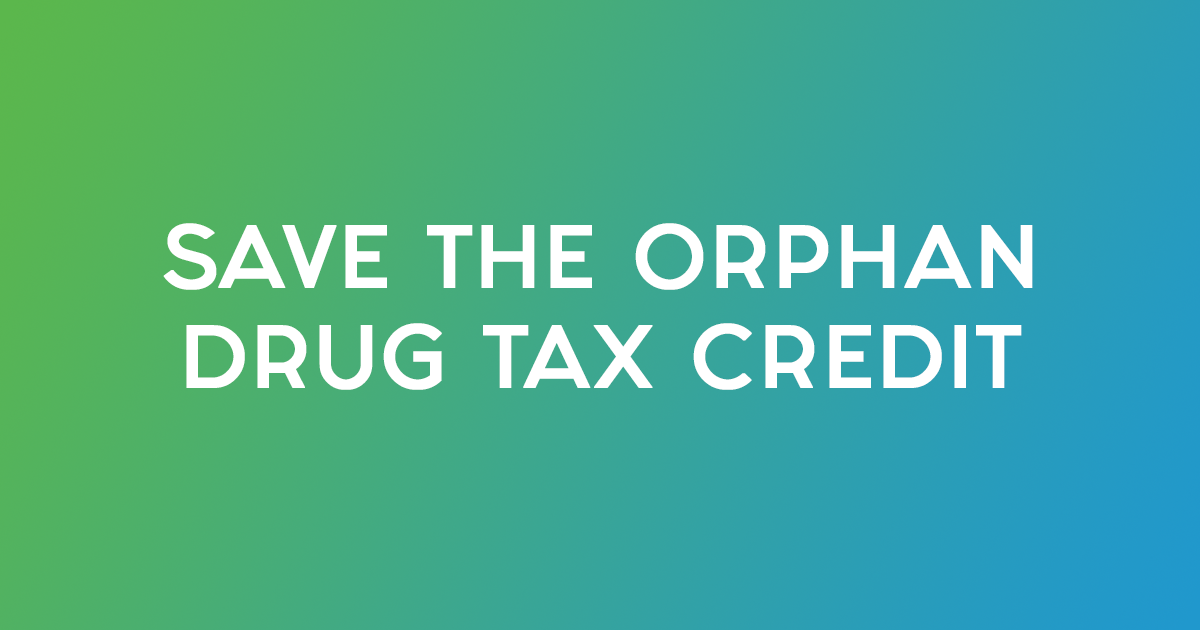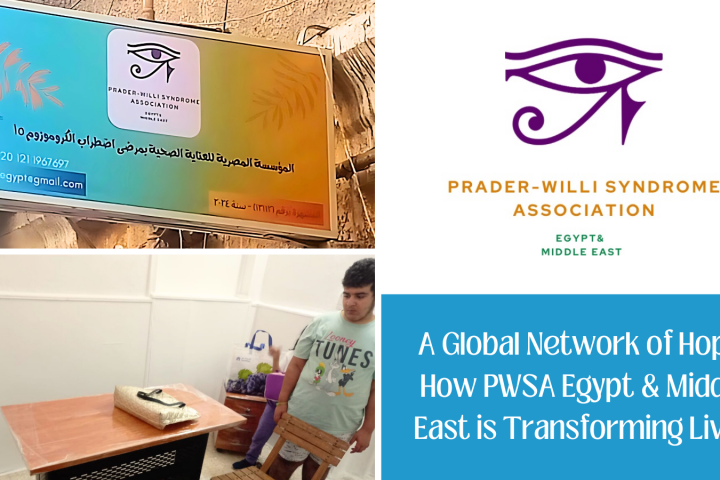The orphan drug tax credit is crucial to assist and encourage pharmaceutical companies to develop therapies for rare diseases. Please help us spread the word to lawmakers by clicking on the button below.
History
- An Orphan Drug is a pharmaceutical that is created in order to treat a rare disease. The orphan drug tax credit (ODTC) is a federal tax credit available to life science companies working to find cures for diseases that affect small populations. The credit is designed to encourage the development of treatments for rare diseases.
- Between 1983 and 2018, the orphan drug tax credit provided a 50% credit for qualified clinical trials with human subjects, and research grants to promote the development of new treatments for orphan diseases.
- A 2017 overhaul of the tax code under the Trump administration reduced the credit from 50% to 25% beginning in 2018.
- The ODTC has led to approvals for more than 780 products to treat more than 250 rare diseases (most of which are cancer treating therapies). However, there are more than 7,000 rare diseases and only a few hundred have therapies that are indicated for their disease.
- The central rationale behind this piece of legislation was to provide an incentive to invest resources into developing drugs to treat an extremely small patient pool.
- Since the FDA grants orphan drug status to a specific use of a particular drug, it’s possible to obtain orphan drug status for multiple uses of the same drug
Current Situation
On September 13th, the House Ways and Means Committee released a first draft of the tax provisions to be included in the Biden Administration Build Back Better Act. It has a provision that would amend the Orphan Drug Tax Credit (ODTC) in ways that would severely undercut the original goal of the 1983 Orphan Drug Act. Section 138141 of the Build Back Better Act would remove the pharmaceutical tax credit for all but the first approved orphan use of a new drug. There was a push at this week's committee meeting to take out that provision, but it failed. Rare Disease Advocacy organizations and patients are meeting with members of Congress and staff to advocate for the removal or refinement of this provision to ensure it does not hurt communities that would benefit from further study and approval of an on-market therapy.
Thank you for your help!
Share this!





 Jennifer Bolander has been serving as a Special Education Specialist for PWSA (USA) since October of 2015. She is a graduate of John Carroll University and lives in Ohio with her husband Brad and daughters Kate (17), and Sophia (13) who was born with PWS.
Jennifer Bolander has been serving as a Special Education Specialist for PWSA (USA) since October of 2015. She is a graduate of John Carroll University and lives in Ohio with her husband Brad and daughters Kate (17), and Sophia (13) who was born with PWS. Perry A. Zirkel has written more than 1,500 publications on various aspects of school law, with an emphasis on legal issues in special education. He writes a regular column for NAESP’s Principal magazine and NASP’s Communiqué newsletter, and he did so previously for Phi Delta Kappan and Teaching Exceptional Children.
Perry A. Zirkel has written more than 1,500 publications on various aspects of school law, with an emphasis on legal issues in special education. He writes a regular column for NAESP’s Principal magazine and NASP’s Communiqué newsletter, and he did so previously for Phi Delta Kappan and Teaching Exceptional Children. Evan has worked with the Prader-Willi Syndrome Association (USA) since 2007 primarily as a Crisis Intervention and Family Support Counselor. Evans works with parents and schools to foster strong collaborative relationships and appropriate educational environments for students with PWS.
Evan has worked with the Prader-Willi Syndrome Association (USA) since 2007 primarily as a Crisis Intervention and Family Support Counselor. Evans works with parents and schools to foster strong collaborative relationships and appropriate educational environments for students with PWS. Dr. Amy McTighe is the PWS Program Manager and Inpatient Teacher at the Center for Prader-Willi Syndrome at the Children’s Institute of Pittsburgh. She graduated from Duquesne University receiving her Bachelor’s and Master’s degree in Education with a focus on elementary education, special education, and language arts.
Dr. Amy McTighe is the PWS Program Manager and Inpatient Teacher at the Center for Prader-Willi Syndrome at the Children’s Institute of Pittsburgh. She graduated from Duquesne University receiving her Bachelor’s and Master’s degree in Education with a focus on elementary education, special education, and language arts. Staci Zimmerman works for Prader-Willi Syndrome Association of Colorado as an Individualized Education Program (IEP) consultant. Staci collaborates with the PWS multi-disciplinary clinic at the Children’s Hospital in Denver supporting families and school districts around the United States with their child’s Individual Educational Plan.
Staci Zimmerman works for Prader-Willi Syndrome Association of Colorado as an Individualized Education Program (IEP) consultant. Staci collaborates with the PWS multi-disciplinary clinic at the Children’s Hospital in Denver supporting families and school districts around the United States with their child’s Individual Educational Plan. Founded in 2001, SDLC is a non-profit legal services organization dedicated to protecting and advancing the legal rights of people with disabilities throughout the South. It partners with the Southern Poverty Law Center, Protection and Advocacy (P&A) programs, Legal Services Corporations (LSC) and disability organizations on major, systemic disability rights issues involving the Individuals with Disabilities Education Act (IDEA), Americans with Disabilities Act (ADA), and the federal Medicaid Act. Recently in November 2014, Jim retired.
Founded in 2001, SDLC is a non-profit legal services organization dedicated to protecting and advancing the legal rights of people with disabilities throughout the South. It partners with the Southern Poverty Law Center, Protection and Advocacy (P&A) programs, Legal Services Corporations (LSC) and disability organizations on major, systemic disability rights issues involving the Individuals with Disabilities Education Act (IDEA), Americans with Disabilities Act (ADA), and the federal Medicaid Act. Recently in November 2014, Jim retired.